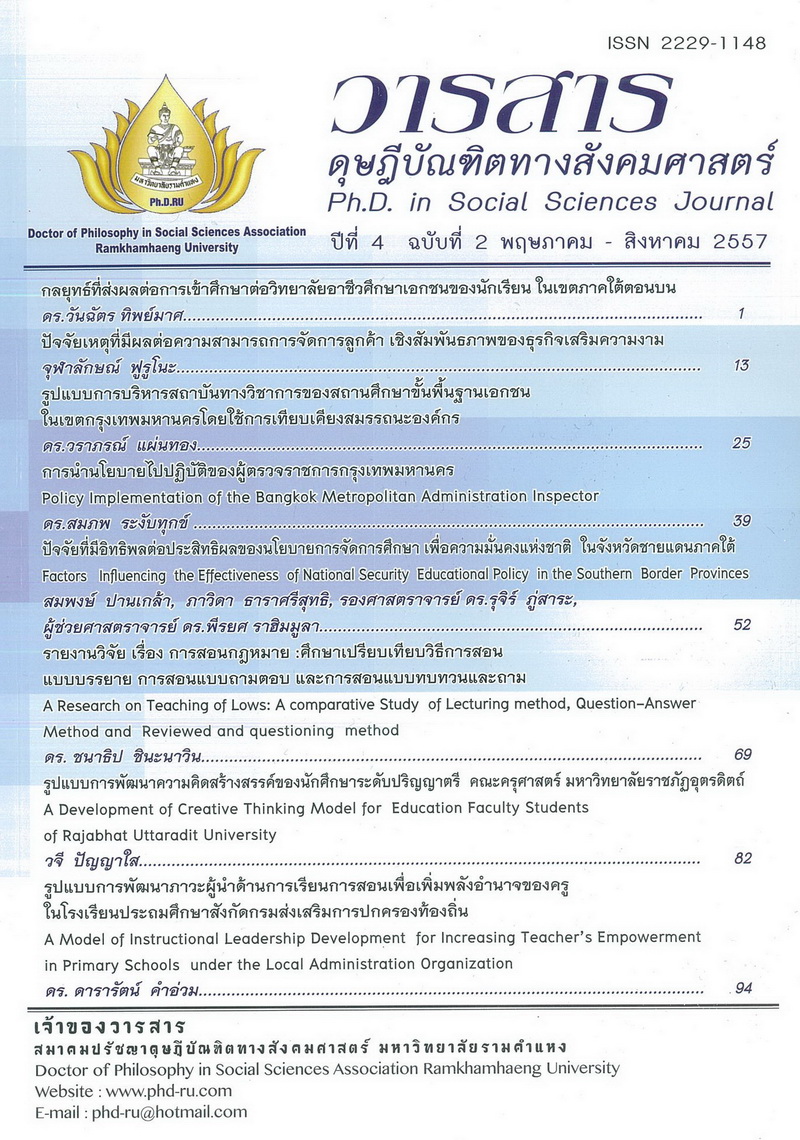ปัจจัยที่มีอิทธิพลต่อประสิทธิผลของนโยบายการจัดการศึกษาเพื่อความมั่นคงแห่งชาติ ในจังหวัดชายแดนภาคใต้
Main Article Content
Abstract
Factors Influencing the Effectiveness of National Security Educational Policy in the Southern Border Provinces
In this dissertation, the researcher examines factors influencing the effectiveness of national security educational policy in the southern border provinces. The researcher also frames a predictive equation governing the effectiveness of national security educational policy. In addition, the researcher recommends attention be paid to strategic issues affecting educational policy in the southern border provinces.
The sample population consisted of two groups: (1) respondents to a questionnaire selected by the method of stratified random sampling from a group of 330 school administrators and chairpersons of educational institution committee; (2) Fifty-one focus group attendees selected from representatives of educational units, educational personnel, and security units both in the bureaucracy and outside. Seventeen interviewees for in-depth interviews were selected from educational administrators from the Ministry of Education, the southern border provinces, and members of the Senate. Findings are as follows: 1) The factors of political methods and social structure exhibited mutual correlation and were correlated with the effectiveness of national security educational policy. However, the factor of administrative strategies was found not to be correlated with the other factors. 2) The predictive equation for the effectiveness of national security educational policy in the southern border provinces in concert with other factors is as follows: (policy effectiveness) = 1.152 + 0.278 political methods (integrated) + 0.209 social structure (history) + 0.170 social structure (culture). (policy effectiveness) = 0.384 political methods (integrated) + 0.280 social structure (history) + 0.196 social structure (culture).
Article Details
Academic articles, research articles, and book reviews in the Ph.D. in Social Sciences Journal are author’s opinions, and not the publisher’s, and is not the responsibility of the Ph.D. in Social Sciences Journal Philosophy Association, Ramkhamhaeng University. (In the case that research is done on human, the researcher has to be trained in Ethics for Doing Research on Human Training and has to produce the evidence of the training).


